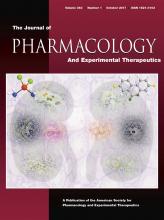Abstract
Pulmonary arterial hypertension remains a fatal disease despite the availability of approved vasodilators. Since vascular remodeling contributes to increased pulmonary arterial pressure, new agents that reduce the thickness of pulmonary vascular walls have therapeutic potential. Thus, antitumor agents that are capable of killing cells were investigated. Testing of various antitumor drugs identified that docetaxel is a superior drug for killing proliferating pulmonary artery smooth muscle cells compared with other drugs, including gemcitabine, methotrexate, and ifosfamide. The administration of docetaxel to rats with severe pulmonary arterial hypertension reversed pulmonary vascular remodeling and reduced right ventricular pressure. Docetaxel was found to decrease autophagy as monitored by LC3B-II and p62 expression. The small interfering RNA knockdown of Beclin-1 or LC3B potentiated docetaxel-induced cell death, and knocking down p62 inhibited the docetaxel effects. The suppressed autophagic process is due to the ability of docetaxel to decrease Beclin-1 protein expression in a proteasome-dependent manner. Mass spectrometry identified a novel docetaxel-inducible Beclin-1 binding protein, namely, myosin-9. Knocking down myosin-9 inhibited docetaxel-induced cell death. In damaged right ventricles of pulmonary arterial hypertension rats, docetaxel remarkably promoted the resolution of fibrosis and the regeneration of myocardium. Thus, docetaxel is capable of reversing pulmonary vascular remodeling and resolving right ventricle fibrosis and is a promising therapeutic agent for the treatment of pulmonary arterial hypertension and right heart failure.
Footnotes
- Received January 8, 2017.
- Accepted July 19, 2017.
↵1 Y.F.I. and N.V.S. contributed equally to this work.
This work was supported by the National Institutes of Health National Heart, Lung, and Blood Institute and National Institute of Aging [Grants R01 HL72844 and R03 AG047824 to Y.J.S.]. The content is solely the responsibility of the authors and does not necessarily represent the official views of the National Institutes of Health.
- Copyright © 2017 by The American Society for Pharmacology and Experimental Therapeutics
JPET articles become freely available 12 months after publication, and remain freely available for 5 years.Non-open access articles that fall outside this five year window are available only to institutional subscribers and current ASPET members, or through the article purchase feature at the bottom of the page.
|






